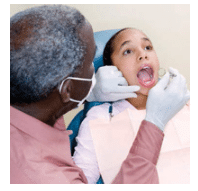Kellogg Foundation Awards Grant to Reduce Oral Health Disparities
The W.K. Kellogg Foundation has awarded a 2-year, $400,000 grant to the American Dental Education Association (ADEA) Minority Dental Faculty Development (MDFD) program to address oral health disparities in underserved communities
Kellogg Foundation Awards Grant to Reduce Oral Health Disparities
The W.K. Kellogg Foundation has awarded a 2-year, $400,000 grant to the American Dental Education Association (ADEA) Minority Dental Faculty Development (MDFD) program to address oral health disparities in underserved communities. ADEA MDFD was chosen because of its mission to unite academic dental professionals with partners in their communities to create an attainable dental home for everyone, regardless of socioeconomic status or race.
The 2-year ADEA MDFD grants are being awarded to the following academic institutions: the University of Detroit Mercy; Georgia Regents University in Augusta; Howard University in Washington, DC; University of Oklahoma in Norman; and University of Minnesota in Minneapolis.
When announcing the grants, the W.K. Kellogg Foundation cited data that indicate minority patients are more likely to seek health care from a minority health care provider, and that many practitioners from underserved areas return to their hometown to practice—which aligns with MDFD’s goal to train diverse populations of oral health professionals who can help resolve the United States’ access-to-care issues.
“The diversity of dental and allied dental school faculty has a direct and positive effect on students, and, ultimately, on patients in communities where oral health care may be more difficult to find,” stated Jeanne C. Sinkford, DDS, PhD, ADEA senior scholar-in-residence. “Kellogg Foundation grants are absolutely critical to the ability of dental health professionals to do their part in delivering oral health care to the people who need it most.”
From Dimensions of Dental Hygiene. February 2015;13(2):14.


